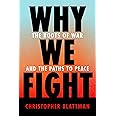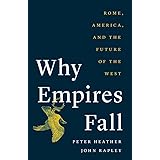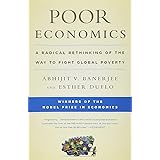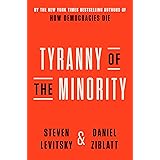Buy new:
-41% $18.93$18.93
Save with Used - Good
$14.82$14.82
Ships from: Amazon Sold by: Dream Books Co.

Download the free Kindle app and start reading Kindle books instantly on your smartphone, tablet, or computer - no Kindle device required.
Read instantly on your browser with Kindle for Web.
Using your mobile phone camera - scan the code below and download the Kindle app.

OK
 Audible sample Sample
Audible sample Sample 


Why We Fight: The Roots of War and the Paths to Peace Hardcover – April 19, 2022

Explore your book, then jump right back to where you left off with Page Flip.
View high quality images that let you zoom in to take a closer look.
Enjoy features only possible in digital – start reading right away, carry your library with you, adjust the font, create shareable notes and highlights, and more.
Discover additional details about the events, people, and places in your book, with Wikipedia integration.
Purchase options and add-ons
“Engaging and profound, this deeply searching book explains the true origins of warfare, and it illustrates the ways that, despite some contrary appearances, human beings are capable of great goodness.”—Nicholas A. Christakis author of Blueprint: The Evolutionary Origins of a Good Society
Why did Russia attack Ukraine? Will China invade Taiwan and launch WWIII? Why has the number of civil wars reached their highest level in decades? Why are so many cities in the Americas plagued with violence? And finally, what can any of us do about it?
It feels like we’re surrounded by violence. Each conflict seems unique and insoluble. With a reason for every war and a war for every reason, what hope is there for peace? Fortunately, it’s simpler than that. Why We Fight boils down decades of economics, political science, psychology, and real-world interventions, giving us some counterintuitive answers to the question of war.
The first is that most of the time we don’t fight. Around the world, there are millions of hostile rivalries, yet only a fraction erupt into violence. Most enemies loathe one another in peace. The reason is simple: war is too costly to fight. It’s the worst way to settle our differences.
In those rare instances when fighting ensues, that means we have to ask ourselves: What kept rivals from the normal, grudging compromise? The answer is always the same: It’s because a society or its leaders ignored those costs of war, or were willing to pay them.
Why We Fight shows that there are just five ways this happens. From warring states to street gangs, ethnic groups and religious sects to political factions, Christopher Blattman shows that there are five reasons why violent conflict occasionally wins over compromise.
Through Blattman’s time studying Medellín, Chicago, Liberia, Northern Ireland, and more, we learn the common logics driving vainglorious monarchs, dictators, mobs, pilots, football hooligans, ancient peoples, and fanatics. Why We Fight shows that war isn’t a series of errors, accidents, and emotions gone awry. There are underlying strategic, ideological, and institutional forces that are too often overlooked.
So how to get to peace?
Blattman shows that societies are surprisingly good at interrupting and ending violence when they want to—even gangs do it. The best peacemakers tackle the five reasons, shifting incentives away from violence and getting rivals back to dealmaking. And they do so through tinkering, not transformation.
Realistic and optimistic, this is a book that lends new meaning to the adage “Give peace a chance.”
- Print length400 pages
- LanguageEnglish
- PublisherViking
- Publication dateApril 19, 2022
- Dimensions6.3 x 1.28 x 9.31 inches
- ISBN-101984881574
- ISBN-13978-1984881571
The Amazon Book Review
Book recommendations, author interviews, editors' picks, and more. Read it now.
Frequently bought together

Similar items that may ship from close to you
 This implies something you might find counterintuitive: often, the more destructive our weapons, the easier it should be to find peace.Highlighted by 53 Kindle readers
This implies something you might find counterintuitive: often, the more destructive our weapons, the easier it should be to find peace.Highlighted by 53 Kindle readers Fourth is something called a commitment problem. Usually, when your rival grows powerful, your best option is to concede something. But what if you’re warned of your opponent’s rise in advance? You can strike now, while you’re still strong, and avert your decline.Highlighted by 51 Kindle readers
Fourth is something called a commitment problem. Usually, when your rival grows powerful, your best option is to concede something. But what if you’re warned of your opponent’s rise in advance? You can strike now, while you’re still strong, and avert your decline.Highlighted by 51 Kindle readers War bias comes about when the people who decide whether or not to launch a conflict have a set of risks and rewards different from the society they supposedly represent. In other words, when the leadership’s private incentives differ from the public interest.Highlighted by 48 Kindle readers
War bias comes about when the people who decide whether or not to launch a conflict have a set of risks and rewards different from the society they supposedly represent. In other words, when the leadership’s private incentives differ from the public interest.Highlighted by 48 Kindle readers
Editorial Reviews
Review
“Blattman deftly translates knotty ideas from game theory and social choice theory for a lay audience, weaving in colorful anecdotes from his own life and travels.”—Foreign Affairs
"Noting that the high costs of violence almost always make peaceful agreement a better solution to antagonisms than violence, University of Chicago economist Blattman analyzes forces that often counteract that logic, including the self-interest of leaders, ideological passions, miscalculation of an opponent’s strength or motives, and mistrust… This stimulating discussion of violence illuminates a fraught subject with sober reason."—Publishers Weekly
“Blattman shows us things we don’t normally see and takes us to places we might be terrified to go. A captivating and intelligent book.”—Tim Harford, author of The Data Detective and The Undercover Economist
“Engaging and profound, this deeply searching book explains the true origins of warfare, and it illustrates the ways that, despite some contrary appearances, human beings are capable of great goodness.”—Nicholas A. Christakis author of Blueprint: The Evolutionary Origins of a Good Society
“A surprisingly and refreshingly optimistic book, one that deserves a place both on living room and diplomats’ shelves.”—Anne-Marie Slaughter, CEO, New America
“An important, radical book that leaves you hopeful that peace is not a dream and conflict is not inevitable.”—David Miliband, president and CEO, International Rescue Committee
“The most important book on this most important topic.”—Tyler Cowen, author of Average Is Over and Marginal Revolution
“Economists imagine that people in poor countries wake up every day worrying that they are poor. Maybe, but more fundamentally they are insecure and subject to violence. Foregrounding this most basic human problem is essential for understanding the world we live in today.”—James A. Robinson, coauthor of Why Nations Fail
“Blattman is the go-to social scientist on war. His insights are essential reading.”—William Easterly, author of The White Man’s Burden and The Tyranny of Experts
“Why We Fight not only reflects Blattman’s expertise in economics, political science, and history, it also introduces us to an intriguing range of characters and locations. We meet a warlord from Liberia called White Flower, and in the same chapter learn why George Washington became America’s wealthiest president. Blattman is a great storyteller, with important insights for us all.” —Richard H. Thaler, winner of the Nobel Memorial Prize in Economic Sciences and coauthor of Nudge
“As we move into the third decade of the twenty-first century, humanity is still mired in wars and deadly conflicts. Avoiding the useless dichotomies that either claim violence is an inseparable part of human nature or declare that humanity has all but conquered its proclivity to war, Christopher Blattman explains how human communities make use of many different strategies to resolve conflicts, and why these efforts sometimes stumble.”—Daron Acemoglu, coauthor of Why Nations Fail
About the Author
Product details
- Publisher : Viking (April 19, 2022)
- Language : English
- Hardcover : 400 pages
- ISBN-10 : 1984881574
- ISBN-13 : 978-1984881571
- Item Weight : 1.34 pounds
- Dimensions : 6.3 x 1.28 x 9.31 inches
- Best Sellers Rank: #652,206 in Books (See Top 100 in Books)
- #851 in Violence in Society (Books)
- #1,093 in Medical Social Psychology & Interactions
- #1,558 in Popular Social Psychology & Interactions
- Customer Reviews:
About the author

Christopher Blattman is the Ramalee E. Pearson Professor of Global Conflict Studies at the University of Chicago's Harris School of Public Policy, where he leads the international policy and development group and directs the prestigious Obama Foundation Scholars Program. He is an economist and political scientist, and his global work on violence, crime, and poverty has been widely covered by The New York Times, Washington Post, WSJ, Financial Times, Forbes, Slate, Vox, and NPR.
Customer reviews
Customer Reviews, including Product Star Ratings help customers to learn more about the product and decide whether it is the right product for them.
To calculate the overall star rating and percentage breakdown by star, we don’t use a simple average. Instead, our system considers things like how recent a review is and if the reviewer bought the item on Amazon. It also analyzed reviews to verify trustworthiness.
Learn more how customers reviews work on Amazon-
Top reviews
Top reviews from the United States
There was a problem filtering reviews right now. Please try again later.
Properly warned, Blattman gets down to the business of war. He provides readers with a fascinating analysis of why wars erupt when they do. He employs the tools of game theory extensively, especially insofar as it involves bargaining and the space available to reach bargains. He shows how rivals often think of the spoils of war, using pies to illustrate the availability of bargaining space. In my view, the greatest asset of this book is one that vastly expands the book’s application. Specifically, Blattman has done us a great service showing how the factors at play between states also apply to gang warfare within urban areas and across regions.
The central message is that war, for the most part, entails important calculations under conditions of significant uncertainty. The factors Blattman isolates as often antecedent to war include:
Unchecked interests. Political leaders may impose the costs of war on others, while remain shielded from the tragedy of war.
Intangible incentives. Individuals to can convince themselves that justice, ideological aspirations or other intangible “benefits” can only be obtained through the prolonged conflict that is war.
Uncertainty. A lack if knowledge of the other side’s capabilities and determination can lead political decision-makers to abandon caution and pursue conflict.
Commitment problems. These can sometimes be construed as the inability to trust one’s opponents to honor agreements, but it may also reflect not so much trust or the lack thereof, but the inability to structure conflict resolutions with an effective mix of incentives for upholding, and disincentives for abandoning agreements.
Misperceptions. Adversaries are likely to be overly confident and prone to demonize one another.
The difficulty with Blattman’s approach is that the factors he has isolated as conducive to conflict are neither mutually exclusive, nor weighted by importance (defined, for example, as the probability of culminating in war). Then again, these criticisms are part of a larger problem; the problem of defining exactly what we want from a theory of modern warfare and whether, any given theory, can satisfy those aspirations. All that aside, Christopher Blattman’s book is very much worth reading and pondering. No better time for both.
Why we Fight is timely due to the fact that global tensions are one the rise. It is not particularly new in bringing insight as to what to do or what is unique about current tensions (which is better understood by the books by historians, like Graham Allison). The author starts by highlighting how gangs can coordinate their actions as fighting structurally shrinks the pie and as such hostile parties can still avoid conflict by rationally calculating each others strengths and then dividing the pie by compromise to keep the pie larger than would happen if conflict was to occur. This simple idea is then expanded upon throughout the book so that when conflict occurs it can be understood through the lens of some particular type of failure. Typical failures occur when each side underestimates the capability of the other, or implicitly over estimates their own. Failures occur when there are agency problems and the power structure of a nation or group are too centralized and distant from the conflict inflicted upon those on the front (this seems like is the obvious issue in today's conflict), these can often happen through ethnic lenses or religious narratives. After conflict ensues and relative strengths are understood typical new paths to compromise are often found due to the self destructive nature of conflict. The book effectively goes through the cost benefit of conflict vs resolution and argues that game theory draws the dynamics and solution though failures occur and are abnormal rather than common.
Why We Fight is a quick overview of conflict in the real world as occurs via competing groups, most of the analysis is on subjects like gangs and territorial conflicts but it can be viewed in a larger context. The author overviews how conflict almost always happens when uncertainty is high and especially uncertainty about relative power but ultimately when this becomes understood solutions eventually form. Things are aggravated by centralized power structures, but outside the nation state such organization will not maintain itself. There is nothing eye opening about the book and the intended audience seems at the end through the authors conclusions to be some young students to be future leaders, this is a bit odd as I dont believe that is most of the audience. Overall it is a reasonable and easy to understand book, though not particularly enlightening.
This is a masterful look at conflict, and for a book looking at conflict, it starts from what struck me as a relatively controversial hypothesis: Conflict is the exception, not the norm. From there, Chris relies on his own expertise, which is both deep and broad, to discuss the causes of conflict, but also what we can do to minimize the likelihood of conflict, if not altogether avoid it.
Given existing tensions and increasingly inflammatory rhetoric in the United States, I hope policy makers at the state and federal levels are paying attention to what Chris has to say in this book.
No one is better positioned to address this question than Chris Blattman. “Why We Fight” is filled with compelling stories alongside comprehensive research. This should be required reading for anyone trying to understand modern social order.














